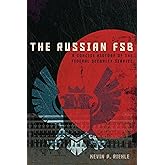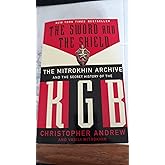
Enjoy fast, free delivery, exclusive deals, and award-winning movies & TV shows with Prime
Try Prime
and start saving today with fast, free delivery
Amazon Prime includes:
Fast, FREE Delivery is available to Prime members. To join, select "Try Amazon Prime and start saving today with Fast, FREE Delivery" below the Add to Cart button.
Amazon Prime members enjoy:- Cardmembers earn 5% Back at Amazon.com with a Prime Credit Card.
- Unlimited Free Two-Day Delivery
- Streaming of thousands of movies and TV shows with limited ads on Prime Video.
- A Kindle book to borrow for free each month - with no due dates
- Listen to over 2 million songs and hundreds of playlists
- Unlimited photo storage with anywhere access
Important: Your credit card will NOT be charged when you start your free trial or if you cancel during the trial period. If you're happy with Amazon Prime, do nothing. At the end of the free trial, your membership will automatically upgrade to a monthly membership.
Buy new:
-48% $10.35$10.35
Ships from: Amazon Sold by: HQR Express
Save with Used - Very Good
$7.99$7.99
FREE delivery April 17 - 22
Ships from: firstclassbooks Sold by: firstclassbooks

Download the free Kindle app and start reading Kindle books instantly on your smartphone, tablet, or computer - no Kindle device required.
Read instantly on your browser with Kindle for Web.
Using your mobile phone camera - scan the code below and download the Kindle app.



 Audible sample
Audible sample Follow the authors
OK
The New Nobility: The Restoration of Russia's Security State and the Enduring Legacy of the KGB Paperback – September 13, 2011
Purchase options and add-ons
While Vladimir Putin has been president and prime minister of Russia, the Kremlin has deployed the security services to intimidate the political opposition, reassert the power of the state, and carry out assassinations overseas. At the same time, its agents and spies were put beyond public accountability and blessed with the prestige, benefits, and legitimacy lost since the Soviet collapse.
The security services have played a central -- and often mysterious -- role at key turning points in Russia during these tumultuous years: from the Moscow apartment house bombings and theater siege, to the war in Chechnya and the Beslan massacre. The security services are not all-powerful; they have made clumsy and sometimes catastrophic blunders. But what is clear is that after the chaotic 1990s, when they were sidelined, they have made a remarkable return to power, abetted by their most famous alumnus, Putin.
- Print length317 pages
- LanguageEnglish
- Publication dateSeptember 13, 2011
- Dimensions6.05 x 1.25 x 9 inches
- ISBN-101610390555
- ISBN-13978-1610390552
Book recommendations, author interviews, editors' picks, and more. Read it now
Frequently bought together

Customers who viewed this item also viewed
Editorial Reviews
Review
“This important monograph, written by a brave and talented team, is a history of the KGB (now called the FSB) over the last fifteen years.”―Literary Review
“Drawing on extensive investigations, the two journalists have written a gripping account of how veterans of the KGB seized control of the Russian state… This book paints a chilling picture of a country dominated by a power-hungry clique. Anyone who wants to understand Putin’s brave new Russia should read it.”―New Statesman
“A thorough and very brave examination of an organization that has a tight political, commercial and economic grip on Russia.”―Financial World (UK)
“For those looking for yet more evidence that the security services are pulling the strings in modern Russia, look no further than this extraordinary new book from the fearless journalists at agentura.ru. Soldatov (who has written for Russian Life) and Borogan have compiled a history of FSB activities and operations over the past decade that paint a very vivid picture of a security service that has become Russia’s new ruling class… With amazing accounts of some of the most significant security crises and counter-terrorist activities of the past decade, Soldatov and Borogan offer insights into FSB operations that have not been offered anywhere to date… A must read.”―Russian Life
“Impressively detailed and unsettling… Soldatov and Borogan have done an excellent job in shining a light in some of Russia’s darkest corners.”―Irish Times
“If all of this still feels too frivolous, turn to The New Nobility, an inside look at the KGB by a pair of fearless Russian journalists, Andrei Soldatov and Irina Borogan. Charting the organisation's heyday, decline and creeping return to power, it promises to raise the hairs on your neck as effectively as Ackroyd's ghost stories.”―The Guardian
“A detailed dissection of the FSB, the heir to the KGB, which still casts a long shadow over Moscow. For more than a decade the two authors have run the website Agentura.ru, a gold mine of information on the inner workings of the security services, particularly the FSB. In a country where many journalists have been attacked or killed for speaking truth to power, their reporting has been brave.”―Financial Times
“The New Nobility is an unnerving look at the real power behind the new Russia.”―Mother Jones
About the Author
Irina Borogan is an investigative journalist, co-founder, and deputy editor of Agentura.ru, a watchdog of the Russian secret services’ activities. Borogan has reported on terrorism in Yugoslavia, tensions in the West Bank and Gaza Strip, and has extensively chronicled the Kremlin's campaign to gain greater control of civil society. She is co-author with Andrei Soldatov of The New Nobility. The Restoration of Russia’s Security State and the Enduring Legacy of the KGB (2010), The Red Web: The Struggle Between Russia’s Digital Dictators and the New Online Revolutionaries (2015) and The Compatriots: The Brutal and Chaotic History of Russia's Exiles, Émigrés, and Agents Abroad (2019), all published by PublicAffairs. Her reporting has also been featured in the New York Times, Moscow Times, Washington Post, Online Journalism Review, Le Monde, Christian Science Monitor, CNN, and BBC. She lives in London.
Product details
- Publisher : PublicAffairs; 1st edition (September 13, 2011)
- Language : English
- Paperback : 317 pages
- ISBN-10 : 1610390555
- ISBN-13 : 978-1610390552
- Item Weight : 12.8 ounces
- Dimensions : 6.05 x 1.25 x 9 inches
- Best Sellers Rank: #590,255 in Books (See Top 100 in Books)
- #358 in Espionage True Accounts
- #802 in Political Intelligence
- #1,241 in Russian History (Books)
- Customer Reviews:
About the authors

Irina Borogan is a Russian investigative journalist in exile.
Borogan reported on terrorist attacks in Russia, including hostage takings in Moscow and Beslan. In 1999 Borogan covered the NATO bombing in Yugoslavia, in 2006 she covered the Lebanon War and tensions in the West Bank and Gaza Strip. She chronicled the Kremlin's campaign to gain control of civil society and strengthen the government's police services under the pretext of fighting extremism.
She is co-author with Andrei Soldatov of The New Nobility. The Restoration of Russia’s Security State and the Enduring Legacy of the KGB (PublicAffairs, 2010), The Red Web: The Kremlin's Wars on the Internet (PublicAffairs, 2015) and The Compatriots: The Brutal and Chaotic History of Russia's Exiles, Émigrés, and Agents Abroad (PublicAffairs, 2019).
She lives in London.

Andrei Soldatov is a Russian investigative journalist in exile, co-founder and editor of Agentura ru, a watchdog of the Russian secret services’ activities.
He has been covering security services and terrorism issues since 1999.
He is co-author with Irina Borogan of The New Nobility. The Restoration of Russia’s Security State and the Enduring Legacy of the KGB (PublicAffairs, 2010), The Red Web: The Struggle Between Russia’s Digital Dictators and the New Online Revolutionaries (PublicAffairs, 2015) and The Compatriots: The Brutal and Chaotic History of Russia's Exiles, Émigrés, and Agents Abroad (PublicAffairs, 2019).
Now Soldatov lives in exile in London (he has been on Russia's most wanted list since 2022).
Customer reviews
Customer Reviews, including Product Star Ratings help customers to learn more about the product and decide whether it is the right product for them.
To calculate the overall star rating and percentage breakdown by star, we don’t use a simple average. Instead, our system considers things like how recent a review is and if the reviewer bought the item on Amazon. It also analyzed reviews to verify trustworthiness.
Learn more how customers reviews work on AmazonReviews with images
A fascinating tale of the modus-operandi of Russia's dirty and corrupt intelligence community...
Top reviews from the United States
There was a problem filtering reviews. Please reload the page.
- Reviewed in the United States on May 8, 2014Not a slightest doubt: it is an extremely scary book, on the level with any well-detailed research about Inquisition, Gestapo, GULAG or StaSi. Paging through the horrors of the past, we always enjoy a happy soothing thought: thanks God for our lives in the present-day lawful democracies with no omnipotent henchmen around us! This book, however, denies us this enjoyment - its pages prove that even now, in our most democratic XXI century, we have no grounds for any soothing thoughts. In 2014, the Russian FSB is much more far from accountability than its KGB predecessor ever was. In fact, it owns the country entirely, ruling the Russian economy, industry, trade, banking, foreign relations, education - well, everything. The book shows, that, unlike KGB (which was driven by the Communist ideology, being accountable before the Party Politburo), the FSB is driven only by its own lust for unaccountable power and money, thus corrupting the nation with a speed of uncontrolled cancer, which devours greedily all the healthy cells of a human body.
To judge from the book, actions of FSB (that is, of Service for Federal SECURITY) may be called "professional" only in the same sense as cancerous activities are professional in safeguarding the tumor's further growth. The activists of this cancerous progress were rewarded with a proud name of "The New Nobility". Just how could it happen in the democratic country, protected by the diligent copy of the U.S. Constitution, first, and by the common knowledge about millions of the old State Security's innocent victims, second?!
Some two hundred years earlier Alexis de Tocqueville wrote in his introduction to "Democracy in America" that "In the eleventh century, nobility is beyond all price; in the thirteenth, it might be purchased". It seems that in our century the nobility may be elected - and in the most democratic manner at that, without any machine-guns behind. The new nobility gives birth to a million-lives question: what kind of voters would voluntarily say "Yes!" to the representatives of the worst division in the totalitarian bureaucracy - the old State Security, whose iron "cadres" had proved long ago both their total amorality and their total absence of skills in anything but destruction?
The authors give no answer, but readers are hardly expected to say the usual "Ah, those Russians!" Because approximately the same picture (of course, to the smaller extent, for the present) of careless voting for all clones of dangerous cancers is becoming more and more typical for many Western countries too. Numerous gifted authors analyze the weird phenomena of voters' nonchalance in the most convincingly documented studies of their countries' decline (like the American "Obama Zombies", the British "Not With a Bang", etc) - but, nevertheless, omnipresent cancers just continue their merry democratic growth, decline or not. "The New Nobility" supplies us with the timely warning about quite real chances for the ultimate decline: from the initial bright hopes of freedom and prosperity into a hopeless realm of totalitarian dictatorship. I believe, the book is an excellent food for our thoughts, - and, unfortunately, not about my Russia only. Rostislav, Saint-Petersburg.
- Reviewed in the United States on November 11, 2010During the 2008 Russian assault on Georgia, a Ukrainian commentator referred to the growing spectre of what he called "Weimar Russia". Indeed, the Russian Federation is now a very rickety democracy, and anyone interested in its increasingly delinquent conduct both at home and abroad should consult this vital book on its main security service - the FSB.
It takes considerable bravery for two Russian reporters to write a book about the FSB, especially one in English. After all, at the time that Anna Politkovskaya was shot dead in 2006, the Committee to Protect Journalists reported that since the year 2000, twelve reporters had been killed in Russia in what were described as "contract-style" murders. The killings have not abated since.
The pre-9/11 Christopher Hitchens once wrote an essay on the CIA entitled "The State within the State", emphasising that the agency is not only exempt from having to account for its receipts and expenditures, but that "the CIA, citing national security, has managed to exempt itself from all manner of scrutiny, be it from the Congress, the press, or ordinary citizens." The hermetic secrecy of the FSB is surely far worse: as the authors point out on page one, the FSB enjoys "expanded responsibilities and immunity from public oversight or parliamentary control". In addition: "the FSB's budget is not published; the total number of officers is undisclosed." (And Vladimir Putin, whom the agency effectively reports to, is ex-KGB.) It is bad enough when a spy agency lacks accountability in a strong democracy, but in a weak democracy such as today's Russia, the potential for abuse proliferates.
Yet the harm done by a bad example sometimes flows in the opposite direction. Two interesting anecdotes from "The New Nobility" serve as a warning to the West in this respect:
1. In a bit of sharp practice that resembled the US government's Guantanamo Bay exceptionalism, in 2006 the FSB got around the Ministry of Justice's requirements that it surrender the prisons under its purview. A year after Putin signed the decree to do so, he issued another decree allowing the FSB to establish "temporary" detention centres - and this was three years after the FSB had already swallowed one of the few other agencies allowed to do so: the Federal Border Service. Thus Russia now has "temporary" (i.e., indefinite) detention powers bolted onto a state agency with zero transparency.
[p. 130-2]
2. A darkly amusing aside in the chapter on the FSB's alleged foreign assassinations notes that this increasingly ruthless force now looks to Israel for inspiration on performing mafia-style hits abroad.
[p. 200]
Thus both these instances corroborate the recent findings of Mary Robinson's juridical inquiry into torture and abuse abroad: that when standards of human rights loosen at the centre of the democratic world, that's the cue for them to fall apart at the periphery.
The writing style in "The New Nobility" is a little matter-of-fact, and after a certain amount of chewing through it, it does begin to feel a bit dry. But the authors are modest enough in their Acknowledgments to credit colleagues with "polishing their English", and, after all, it's fair to ask how many Anglophone journalists write good prose in Russian.
Overall, this is an important contribution to Kremlin-watching from two journalists who have been on the scene of the Nord-Ost siege and the Beslan massacre (both events are well-explained herein), and have undergone interrogation and harassment from the FSB for their efforts to expose the recrudescence of a police state within their own country. Their courage - which comes at no small risk to themselves - should be rewarded with a broad readership.
Top reviews from other countries
-
 Nicolas de los RiosReviewed in Spain on May 4, 2020
Nicolas de los RiosReviewed in Spain on May 4, 20205.0 out of 5 stars Pedacito de historia para curiosos
Con una cantidad absorbente de detalles y matices, ayuda a esclarecer de manera ligera y apacible la caja negra que durante tantos años han representados los servicios secretos sovieticos a lo largo de su historia, sin olvidar que solo se presenta la capa superior que esconde un enorme glaciar aún oculto por los personajes descritos en el libro. 100% recomendado para que el busque conocer un poco más la historia rusa, sin esperar grandes detalles o descubrimientos súper secretos.
-
 BestellerReviewed in Germany on June 10, 2022
BestellerReviewed in Germany on June 10, 20225.0 out of 5 stars Interessant
Es ist nicht einfach, die Macht-Strukturen in so einem grossen Land durchsichtig zu machen. Zumal manches auch einfach umbenannt werden kann, aber die Funktion behält. Ich habe das Buch mit Interesse gelesen. Meine Sympathie für Russland ist gleich geblieben, aber meine Sorge um die Menschen und wegen des Regimes hat zugenommen.
 Robert HornReviewed in Canada on November 25, 2010
Robert HornReviewed in Canada on November 25, 20104.0 out of 5 stars More Sword than Shield
Reports by brave and resourceful journalists in Russia are worth buying if for no other reason than to show concern for this enigmatic country that has played a central role, often beneficial, in world affairs since Napoleon. The authors make no attribution to a translator so it must be assumed that they wrote directly into English which is quite remarkable because of the clarity of their language and the absence of absurd posturing that is so prevalent in modern English liberal journalism. What they have to say does not come as a surprise to most of us who have seen with horror the untimely deaths of many Russian journalists, especially those reporting on the criminal behaviour of Russian defence and security forces. Soldatov and Boragan provide new information, much of it first hand, of incidents such as the murder of schoolchildren at Beslan and the infamous Nord-Ost assault by Chechen terrorists. The FSB is shown to be at least incompetent in handling these incidents.
However it is easy to sit on the sideline and tell police and soldiers who were risking their lives how it could have been done better particularly when they were faced with suicide bombers who may explode taking hundreds of victims with them at any threat of being captured. Furthermore, in a world where the United States has waged several undeclared wars starting with Vietnam (does the word infamy spring to mind?), France has killed an opponent of hydrogen bomb tests in the ironically named Pacific Ocean, Britain executed unarmed Irish citizens in a Gibraltar street, to say nothing of murderous Mossad - all in the name of state security is Russia any different?
The end of the USSR created several democracies in countries that had previously known only autocracy of one form or another. In this difficult transition Russia has not been helped by a range of enemies from Islamic terrorists, Russian plutocrats who grabbed vast wealth during the dissolution of the Soviet Union and of course its old foes since 1917, the United States and its satellite Britain. Soldatov and Boragan I believe are too hard on their country. It would have been fairer to put Russia in its global context. It is not greatly different from many countries that have behaved foolishly or even criminally in the face of terrorism.
Terrorism is insidious because it provokes its victims into the same evil mentality as the terrorist. But to fight according to civilised rules is doomed to lose. It is a sad fact that unless a country bows to the terrorists demands it must fight dirty. Trotsky wouldn't have spent his days in exile studying and writing if he had been in the Gulag or Hitler churn out his bizarre diatribe of his `struggle' in an SS concentration camp. Fidel in the hands of the Cuban Security Service would have had to forego the cigars shipped to his prison cell on the Isla de Pinos.
Many countries are faced with the apparently insolvable task of constructing a legal framework that allows effective actions against terrorists but does not trample on the freedom of its citizens. Russia is not unique in having no answer to this conundrum.
 deadcardinalReviewed in the United Kingdom on March 11, 2013
deadcardinalReviewed in the United Kingdom on March 11, 20135.0 out of 5 stars Chillingly clear-sighted
Soldatov and Borogan are courageous seekers after truth in the Russian Federation's media-hostile environment. Security agencies tried to stop the printing of this book's Russian edition, which appeared after the US edition - this one. Then no shop would stock the book
Best of all, one of them wrote this, I suspect, so the dead hand of the translator is not on this - unlike the works of their fellow journalist-hero Anna Politkovskaya. The style is also lacking in the rhetoric typical of much Russian news reporting. So it's a less costive read than many other books about life under Moscow' new 'Man of Steel' - and less gossipy than Masha Gessen, who claims in his newly published 'warts-and-all' additing to Putin lit, to know every mover, shaker and big-time fraudster.
PEN suggested to Polikovskaya that she should leave the country. She didn't and someone blew her brains out on Putin's birthday. Some present. For the sake of their health, I think this pair should move to Londongrad. You can analyse from outside - but you can't from 2 metres down. Their Agentura.ru website has made some of the Kremlin's siloviki rather unhappy.
Good readable book and chillingly clear-sighted. It's the first of many, I hope
-
 xbbReviewed in Spain on March 28, 2015
xbbReviewed in Spain on March 28, 20154.0 out of 5 stars un libro interesante y que profundiza
Recomendable para intersados y especialistas que deseen conocer como la Rusia post-soviética ha reconstruido su sistema de seguridad e inteligencia.















